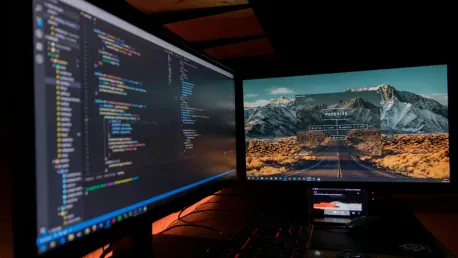Artificial intelligence (AI) is revolutionizing the world of DevSecOps by addressing critical security challenges and fostering collaboration between development, operations, and security teams, radically transforming their interaction and workflow. This significant shift ensures that security is no longer an afterthought but an integral part of the software development lifecycle (SDLC).
Maturation of DevSecOps
DevSecOps, which stands for development, security, and operations, has seen considerable maturation over the years. Initially, integrating security within DevOps practices faced resistance due to the traditionally siloed nature of development, operations, and security teams. However, the rising need for fast, secure software has encouraged organizations to adopt a more collaborative approach. According to David DeSanto, Chief Product Officer at GitLab, the industry has evolved from a “security versus development” mindset to a partnership model. GitLab’s annual DevOps survey indicates fewer team conflicts and more efforts toward integrating security tools that help developers write secure code from the beginning.
AI Enhancements in Developer Security
AI has become a crucial tool in modern DevSecOps, automating repetitive tasks, analyzing vast data sets, and providing actionable insights. One key advancement is AI’s ability to detect vulnerabilities before they are committed to the codebase. DeSanto emphasizes that GitLab’s AI-driven tools can now scan for secrets and resolve vulnerabilities before they get integrated into the project. This proactive approach, known as the “vulnerability summary,” not only resolves issues but also educates developers about potential pitfalls, encouraging better coding practices.
Reduction of False Positives
A significant benefit of AI in developer security is the reduction of false positives, which has traditionally been a major challenge. Conventional static application security testing (SAST) tools often generate numerous false alerts, overwhelming developers. AI addresses this by validating the reachability and exploitability of flagged vulnerabilities. GitLab’s acquisition of Oxide highlights this capability, as Oxide’s technology can assess whether a flagged threat is genuinely exploitable, thus saving time and resources.
AI-Driven Practical Applications
Several practical applications of AI are enhancing developer security:
- Enhanced Code Reviews: AI can suggest appropriate reviewers based on their knowledge of the codebase, ensuring experienced oversight and speeding up the review process.
- Automated Test Generation: AI can automatically generate tests based on code changes. According to GitLab’s 2023 State of AI in Software Development report, this feature is already in use by 41% of organizations, improving test coverage and allowing developers to focus on coding.
- Protection of Proprietary Data: Ensuring that AI tools do not compromise sensitive data is vital. GitLab’s AI capabilities prioritize a privacy-first approach, not using customers’ data for training models.
Future of DevSecOps with AI
As AI technology continues to advance, its role in DevSecOps will deepen, enabling a more proactive security stance. AI’s integration into every aspect of the SDLC promises to make security an inherent part of the development process rather than an afterthought. DeSanto predicts continuous evolution and improvement, with AI enhancing overall software development efficiency and security.
Conclusion
Artificial intelligence (AI) is dramatically reshaping the landscape of DevSecOps by tackling essential security challenges and promoting seamless collaboration among development, operations, and security teams. This profound transformation means security considerations are integrated from the beginning of the software development lifecycle (SDLC) rather than being an afterthought.
AI streamlines code reviews, identifies vulnerabilities, and automates repetitive tasks, allowing developers to focus on innovation. By enabling real-time threat detection, AI ensures that potential risks are addressed quickly and effectively. Moreover, AI tools enhance communication among various teams, fostering a culture of shared responsibility and collaboration.
The integration of AI into DevSecOps workflows not only improves the efficiency of the development process but also ensures that security protocols are adhered to at every stage. As a result, software products are not only delivered more rapidly but are also more secure.
Overall, the infusion of AI in DevSecOps practices is instrumental in creating a more proactive and unified approach to software development, ultimately leading to higher-quality and more secure software applications.









